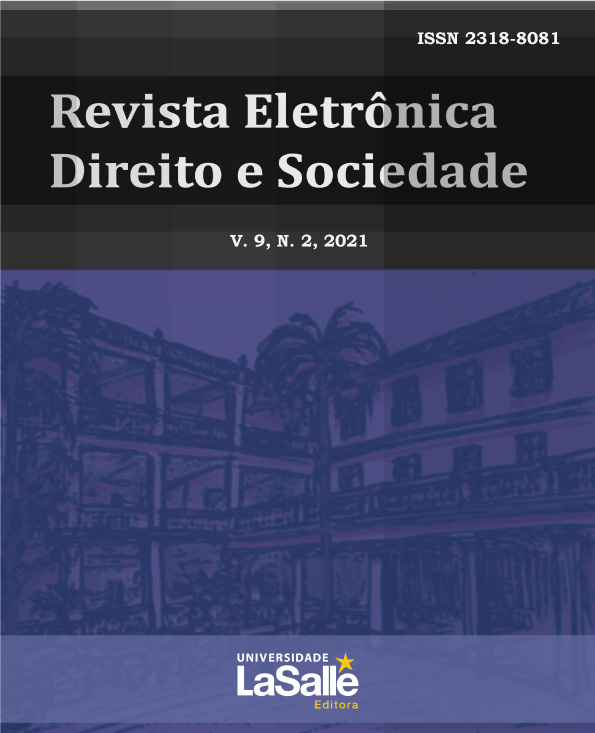Digital parental alienation in the post-truth era
DOI:
https://doi.org/10.18316/redes.v9i2.5660Keywords:
Parental alienation, Post-truth, Internet, Family conflictAbstract
In the connected society, people make themselves present and relate with each other through the internet. The social phenomena, then, are transposed to the virtual environment. This article works with the hypothesis that the phenomenon of parental alienation assumes particular characteristics on the internet. Thus, through the deductive method, the study connects the premises of parental alienation and post-truth on the internet and proposes the category of digital parental alienation. Given this context, the article analyzes how it is possible to apply fundamental duties in family relationships as a means of controlling digital alienation. The theme is studied through civil-constitucional perspective of Law 12,318 of 2010. In the end, it concludes that Law has the role of intervening in cases of digital parental alienation, both in a preventive and repressive manner, while recognizing the need for a multidisciplinary approach, alongside sociology and psychology, to address family conflicts that arise in virtual social networks during hypermodernity.
Downloads
Published
Issue
Section
License
Authors who submit their manuscripts for publication in the “REDES” Magazine agree to the following terms:
The authors claim to be aware that they retain copyright by giving “REDES” the right to publish.
The authors declare to be aware that the work submitted will be licensed under the Creative Commons Non-Commercial Attribution License which allows article sharing with acknowledgment of authorship and publication in this journal.
The authors declare to be aware that by virtue of the articles published in this journal have free public access.
The authors declare, under the penalty of the law, that the text is unpublished and original and that they are aware that plagiarism has been identified, plagiarized authors will be informed - willingly, to take legal action in the civil and criminal sphere - and, plagiarists will have their access to the magazine blocked.
The authors state that - in case of co-authoring - all contributed significantly to the research.
Authors are obliged to provide retractions and (or) corrections of errors in case of detection.
The authors are obliged not to publish the text submitted to “REDES” in another electronic journal (or not).
The Electronic Journal Law and Society - REDES - is licensed under a Creative Commons License. Attribution-NonCommercial 4.0 International.Based on work available at "http://revistas.unilasalle.edu.br/index.php/redes/about/submissions#copyrightNotice".
Permissions in addition to those granted under this license may be available at http://creativecommons.org/.

